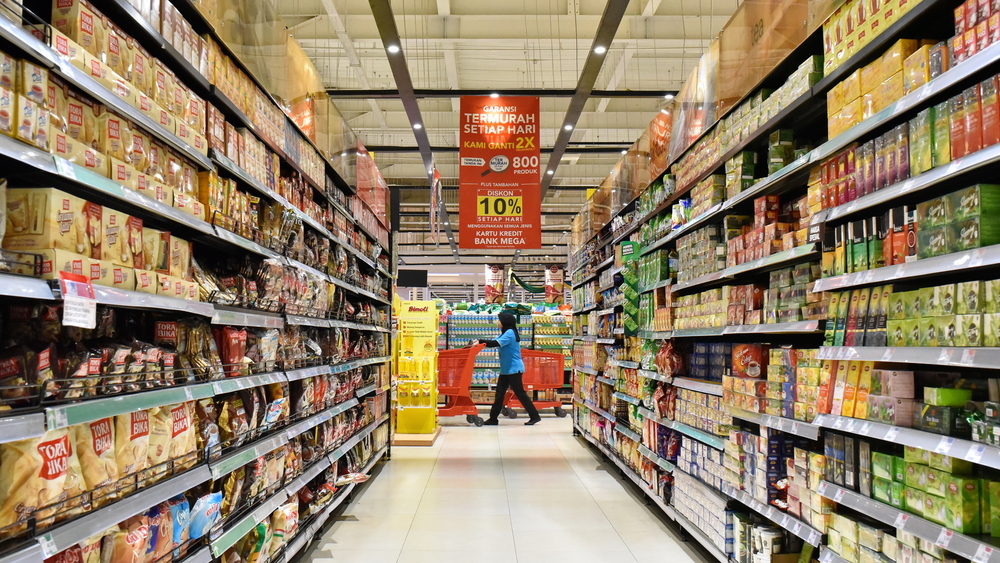Indonesia to launch Islamic economy masterplan, compulsory halal labeling not ‘postponed’, starts Oct 17 - officials
JAKARTA - Indonesia’s National Committee for Islamic Finance (KNKS) will launch an Islamic economy masterplan in March to boost development of the country’s real economy and halal industries, Sutan Emir Hidayat, its Islamic Financial Education and Research Director told Salaam Gateway.
The tentative launch date of the masterplan is March 26, said Hidayat.
The upcoming plan will complement the 10-year Islamic finance masterplan released in 2016 that was designed to accelerate the growth of the country’s Shariah-compliant financial sector.
“We are completing this Islamic economy masterplan architecture with help from Malaysia-based consultant Zaid Ibrahim & Co. (ZICO),” said Hidayat.
The masterplan will be published in English to capture a bigger global audience, he said.
“With this masterplan, there will be better tools for tracking development and providing better information to global stakeholders,” Hidayat added.
Indonesia’s long-term goal, said Hidayat, is to become a “prominent” world centre for the Islamic economy.
COMPULSORY HALAL CERTIFICATION NOT ‘POSTPONED’
The achievement of this goal includes compulsory halal certification and labeling that will start on Oct 17 this year.
“The responsibility of BPJPH to start mandatory halal certification is still Oct 17, 2019,” head of the Halal Product Assurance Agency (BPJPH), Sukoso, told Salaam Gateway.
Sukoso said a Reuters article on Feb 15 was “misleading” to say that Indonesian authorities were postponing the Oct 17 deadline.
Hidayat referred Salaam Gateway to an article of law detailing compulsory halal certification and labeling.
“As far as I know, mandatory halal labeling will be implemented gradually as mentioned in Article 67, Section 2,” said Hidayat.
Article 67 refers to the law passed in 2014 that details the gradual implementation of mandatory halal certification and labeling for different sectors.
Compulsory halal labeling for food and beverage products are to be phased in from Oct this year to 2022.
The phase-in period for drugs, cosmetics, chemical products, biological products, and genetically engineered products is from Oct 2019 to 2024.
This category also includes used or worn products that touch the skin or other parts of the body, such as clothing and accessories, household health supplies and equipment used for Islamic rituals or worship.
The Islamic economy masterplan already factors in Article 67 with regards mandatory halal labeling.
ISLAMIC FINANCE ROLE
Islamic finance will complement the Islamic economy masterplan that will focus on the enhancement of three main sectors: the halal value chain, Islamic digital economy, and small- and medium-sized enterprises (SMEs), according to Hidayat.
KNKS was established in Jul 2017 as a result of a recommendation in the 10-year Islamic finance masterplan. The upcoming Islamic economy masterplan may mean changes to the committee itself.
“With the new masterplan, there might be a change of the KNKS nomenclature as well as change of the committee’s name,” said Hidayat.
He added that a review was ongoing as to whether the changes would require a new Presidential decree.
Six directors at the KNKS currently oversee ten working groups that study a broad cross-section of Islamic finance, including Islamic banking and takaful, the establishment of an Islamic Investment Bank, the conversion of social insurance to become Shariah-compliant, how to support the digitisation of the Islamic economy, the development of Islamic digital payment systems, and how Islamic rural banks can increase financial inclusion.
Since the release of the Islamic finance masterplan in Aug 2016, Indonesia’s Shariah-compliant banking sector grew 36 percent in assets, from 331.76 trillion Indonesian rupiah ($23.48 billion) at the end of Sep 2016 to 451.1 trillion rupiah ($31.93 billion) in Nov 2018. By market share, Islamic banking assets made up 5.13 percent of the country’s banking sector in Sep 2016, growing to 5.7 percent in Nov 2018.
($1= 14,124 Indonesian rupiah)
(Reporting by Yosi Winosa; Editing by Emmy Abdul Alim [email protected])
© SalaamGateway.com 2019 All Rights Reserved
